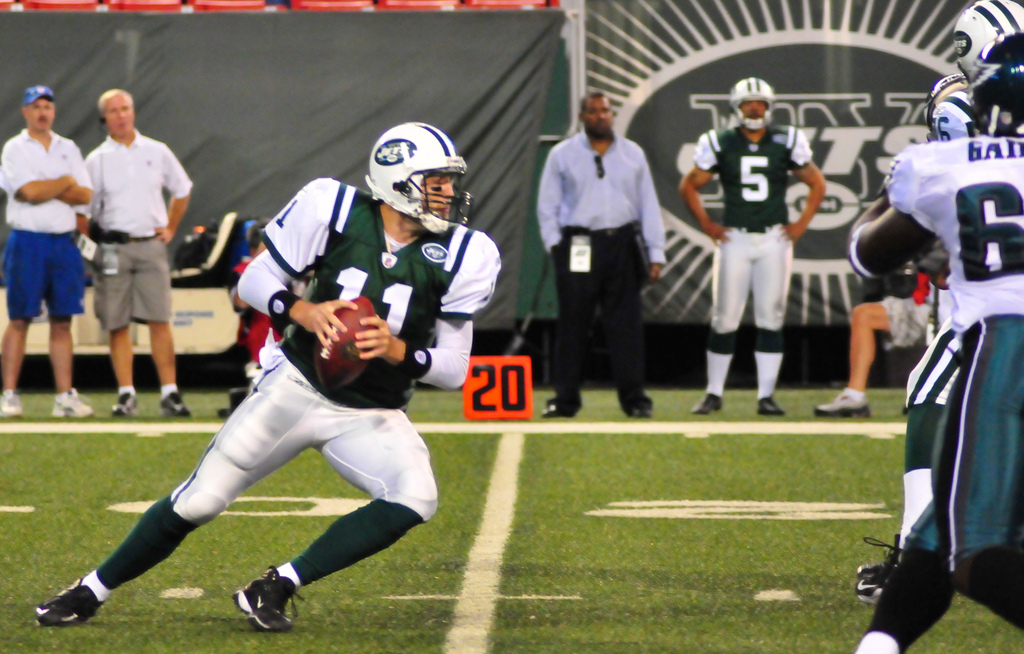Visualizing data can make something easier to understand and perhaps keep you awake. Most students have learned that the cure for insomnia is take a difficult concept, like the philosophical concept of determinism, and explain it with words alone. In case you don’t know, Determinism is defined as “events within a given paradigm are bound by causality in such a way that any state of an object or event is determined by prior states.” Asleep yet? But what if you explain that concept with a picture?

Notice how the explanation become more interesting and relevant with a visual aid? I’m sure you had the same reaction as me. Even though I might not care what determinism means, the picture piqued my curiosity and drew me in to explore the topic than I would have otherwise. The illustration makes a hard concept easy to grasp. Download our eBook, “Dashboards: Take a closer look at your data”.
Visualizing a concept has an amazing affect on the human mind. (more…)
Currently browsing: News
Empower the great the build something greater.
Why Visualizing Data is Important
How to become a data scientist
“How to become a data scientist?” is an interesting question, because there’s no real formal training as of yet to become one. Some universities are combining mathematics, computer science, and humanities classes together, but nothing formal has been decided in terms of a major or full concentration of study. Berkeley, Stanford, and the other greats have classes related to data science, but most classes are nestled within existing information technology or math departments. This is perhaps due to the idea that the position still isn’t properly defined, and “data scientist” is usually a catch all term for people with a variety of skills – some that even tend to conflict with each other. Most hard math or science majors are 1+1=2, end of story. Humanities tends to look at the world more abstractly and realize that there is leeway and not everything adds up. Data science requires much from both of these.
The requirements of people with these skills are also somewhat across the board, with specializations reaching from simple large scale data management and storage, to those who can apply analytics and machine learning or artificial intelligence to make predictions of the future or better apply recommendations to consumers ála Netflix, Amazon, Facebook, and Google.
Nonetheless, there are a specific set of skills you can work to develop and fields of study you can dabble in if you’re interested in working with data. While still somewhat vague, the ultimate purpose of today’s data science is to manage, make sense of, and ask questions of data sets.
Statistics
Applied data science is all about measurement, so work on increasing your statistical chops. In addition to being a general good life skill (probability and common statistics can be used in the media to manipulate human behavior or use to fear monger those into believing false or loosely defined relationships. Knowing even elementary statistics helps you spot bad science.)
Computer Science
Depending on the type of data science you’re into (management vs analytics, for example) a good understanding of computers is a strong skill to develop. Even if you’re interested in only mathematical applications, elementary programming classes can familiarize you with a certain logic and problem solving mindset useful in this space. Being familiar with database languages like MySQL, and the statistical language R, and even web technologies like HTML and PHP can help you write applications to gather data and make life much easier.
Economics / Biology / Bio – Informatics / Physics …
I’ve got a soft spot for my own field of study, economics. But any simple or complex science in which you model reality and try to describe it is useful for data science. Economics itself is the study of efficient allocation of limited resources, so many economic models are built to use data to describe processes and how firms and consumers interact, among many other things. Physics and Biology are also concerned with modeling their “ecosystem” and finding relationships between all of its actors. Being fascinated with how changing inputs changes the outputs is a good mindset to have, all while being able to approach it with a scientific method style of hypothesis testing.
Beyond University, there are a multitude of resources out there for learning how to play with data. MIT OpenCourseWare has a lot of free courses, many dealing with computer science, math, and other sciences. LinkedIn has lots of groups devoted to those who work in data. Try connecting with those people.
6 Questions Salespeople Need to Ask Themselves
If you are a salesperson, you spend your days asking other people questions. However, there are 6 questions salespeople need to ask themselves. These questions will help you sell to people that are ready to purchase, sell from a position of power, and improve your client relationships. (more…)
Predictive Analytics in Retail
Data is no good if you can’t get it quickly enough and act quickly enough on it. Its all about getting the data fast and acting on it fast
– Andrew Pole
Predictive analytics solves many differnt problems in a many facets of business. The New York Times published an article in February about the retail chain, Target. Target knew that if they could predict buying patterns in a certain group of consumers, they could influence those consumers purchases. Target was smart, they knew exactly who they wanted to go after.
Andrew Pole, a statistician working for Target, created a pregnancy-prediction model that was able to track spending habits and predict when a woman is pregnant. Pole said that, “We knew that if we could identify them in their second trimester, there’s a good chance we could capture them for years. As soon as we get them buying diapers from us, they’re going to start buying everything else too. If you’re rushing through the store, looking for bottles, and you pass orange juice, you’ll grab a carton. Oh, and there’s that new DVD I want. Soon, you’ll be buying cereal and paper towels from us, and keep coming back.” (more…)
What does a CEO do?
I overheard someone the other day telling their friend that there was no way their CEO deserved a million dollars a year. “What does our CEO even do anyway, ” she said? “I wish I could come in late, play golf all day, and have no responsibilities. I would do the job for $500,000 and do it better than him…”
I wish I could say I turned and scolded her about how her CEO probably was at a networking event while she was with her family, works most weekends, including holidays, and never shuts off the pressure of running a business, but truth be known, I didn’t know if that was the answer. (more…)
Why We Outsource
Companies tend to outsource things that they don’t consider important or a competitive advantage. Contemporary Analysis takes a different approach to outsourcing. We develop close partnerships with great firms, and use outsourcing as a way to develop competitive advantages, streamline their management structure, and create an environment of innovation. This is important because of how companies are structured at their core. The book, Innovator’s Solution explains that:
“Rarely does an idea for a new-growth business emerge fullyformed from an innovative employee’s head. No matter how well articulated a concept or insight might be, it must be shaped and modified, often significantly, as it gets fleshed out into a business plan that can win funding from the corporation…Midlevel managers play a crucial role in every company’s innovation process. They decide which of the ideas that come bubbling in they will support and carry to upper management for approval, and which ideas they will simply allow to languish.” (more…)

Data Science in the NFL: Finding the Right Players and Strategies
Who are the best NFL players and why? This is a question that NFL teams want to answer, or perhaps they just want confirmation. NFL teams spend a lot of money on scouts to find the best future players, and on staff to determine if their current players are up to par. Teams already have sources to tell them who are the best players and why. So why are some teams beginning to hire data scientists to analyze a players stats to determine his value? How does data science help determine whether a player is good or not?
With football being perhaps the most popular, talked about, and drama filled sport in America, NFL teams invest a lot of money to become the team that everyone talks about, pays to watch, pays to be endorsed by, and generally just pays. The best way to do this is to win a Super Bowl (or have Tim Tebow on your team).
How do you win a Super Bowl?

New Addition to the CAN Offices
In the past 7 months Contemporary Analysis has expanded from 4 to 20 employees, and will easily expand past 50 employees within the next year. To accommodate that growth we have had to expand out offices at 1209 Harney St. Here is an updated look at our offices. (more…)
Innovate with CAN
At Contemporary Analysis, we want help you to be able to innovate. We allow our clients the ability to do this while allowing them to focus on the present, minimize risks, and reach out of thier department. When business’ try to do something in house, instead of leaving it to professionals, it usually results in distraction. When you allow CAN to come in and be a vendor in our area of expertise, it allows your business the freedom to innovate. We want to help you make your company be the company you want it to be. We want to help you work smart.

